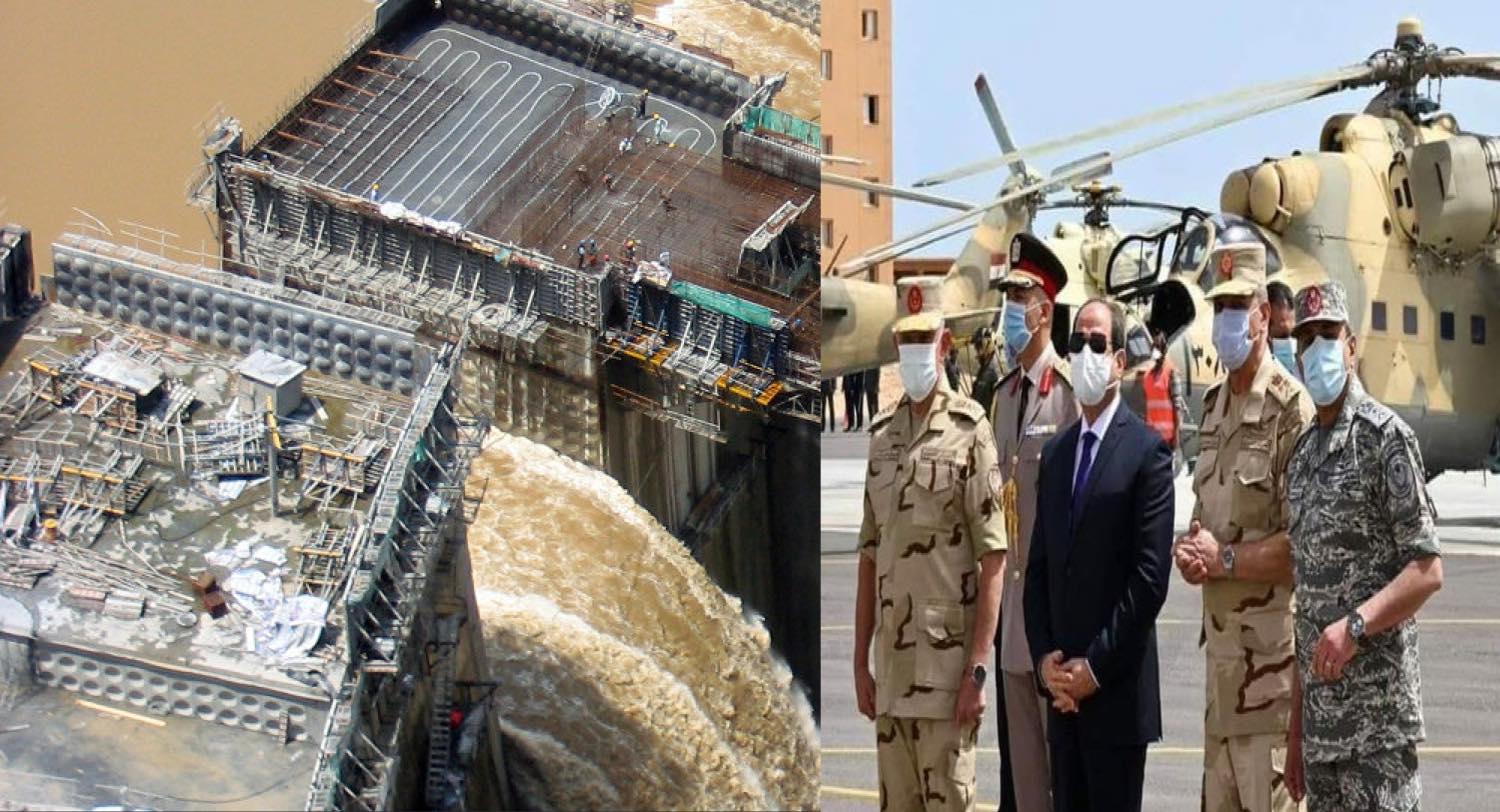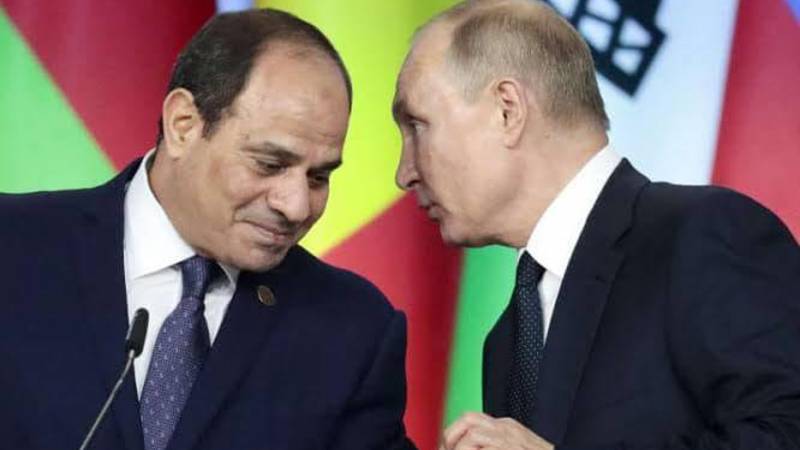After every stumbling block in the negotiations for the Grand Ethiopian Renaissance Dam (GERD), or Ethiopian progress in building the dam, Egyptian cries are emerging in the media and among the elites, inciting the regime to take the military option as a pressure card.
Certain people are calling for this option after Egypt has exhausted most of its political options represented in direct negotiation and the intervention of the United States as a mediator. It has resorted to the African Union, and even requested intervention from the UN Security Council.
In spite of the escalation of these calls, the Egyptian regime issued only faint indications that military force could be used to resolve the matter. These “faint indications” are based on what the (official) Middle East News Agency published about Abdel Fattah al-Sisi’s discussion with the National Defence Council, twice, during the past weeks on the GERD crisis. The statements issued after the two meetings talked about the importance of continuing negotiations. And it seems that the option of using military force is unlikely until now, in light of Cairo not getting any real support for its position, especially from its allies in the region who are pushing it to another military intervention in Libya, instead of supporting it in ensuring its water security.
On the other hand, we find that Ethiopia, more than once, has announced, in official statements, its willingness to go to war to defend its project. It seems that the confidence that Ethiopian Prime Minister Abiy Ahmed Ali has, stems from his obtaining real international and regional support, which pushed him to proceed with the GERD project, and even to implement the initial filling process of Lake al-Sadd, even without reaching an agreement with Egypt and Sudan.
According to the Independent newspaper, water is not the only vital interest of Egypt’s that is at stake. Rather, General al-Sisi has been fighting for his legitimacy as well, especially since he took power in 2014, when he raised people’s expectations about his ability to protect “Egypt’s national security and interests”.
Al-Sisi realises that by losing the diplomatic battle over filling the dam and surrendering to the pressure of Ethiopia, he would risk igniting popular unrest, and possibly a military coup.The Egyptian army has what he needs to be able to bomb the dam, whether by penetrating bombs for concrete fortifications, or through cruise missiles. But the most important question is: What comes after the air strike or bombing?
According to observers, the Ethiopian reaction will be intense, and the most radical right-wing governments will be elected, and the Ethiopian eternal goal will be one thing: to build dams. An editorial from an Ethiopian site said that Egypt surpasses Ethiopia in terms of military force, but if they hit the dam, every Ethiopian farmer will build a dam on the tributary of the Nile that passes its land. The African reaction will also be the expulsion of Egypt from all African organisations, and the consolidation of its image as an imperial colony, the image that upstream countries are seeking to break.
At the international level, tourism and investment will be lost from a country that has turned into a conflict zone, even if the event passes with symbolic condemnation and nothing more. It is also not impossible for a scenario similar to the siege of Iraq and Saddam Hussein to occur, after the invasion of Kuwait, noting that Saddam was the closest friend of the West a few years before that. It is worth noting that the military administration of the Egyptian regime has been largely conservative in recent years, not participating in the Yemen war, despite all the Saudi and Emirati inducements and pressures.
The Egyptian military administration also completely ignored the outcome of the Riyadh Summit in 2017, about forming a counter-terrorism force in Syria. Later, Egypt withdrew from the US-led coalition project against Iran. Even regarding the escalated stance in Libya, the Egyptian attitude remains conservative compared to the Turkish position, and indications show a decline in the chances that Egypt will participate in a war in the West, despite the media, political and parliamentary mobilisation to intervene. However, the regime may take advantage of this step, if it implemented it in a limited manner, to increase its popularity, which has shrunk considerably during the recent period.
A step such as hitting the Renaissance Dam will represent an eternal lift of the shares of the popular regime, whether it succeeds or fails, as this will be a summons to the moment a massive national mobilisation, similar to the Triple Aggression in 1956 or the construction of the High Dam, takes place.
According to the researcher Mohamed Aboul Gheit, the military option cannot be completely excluded, but it means that it should not be proposed at all, even it was the last option, it could be proposed just when it becomes the only option. He added: “Before that option, all political options, including painful concessions, must be exhausted.”





Recent Comments